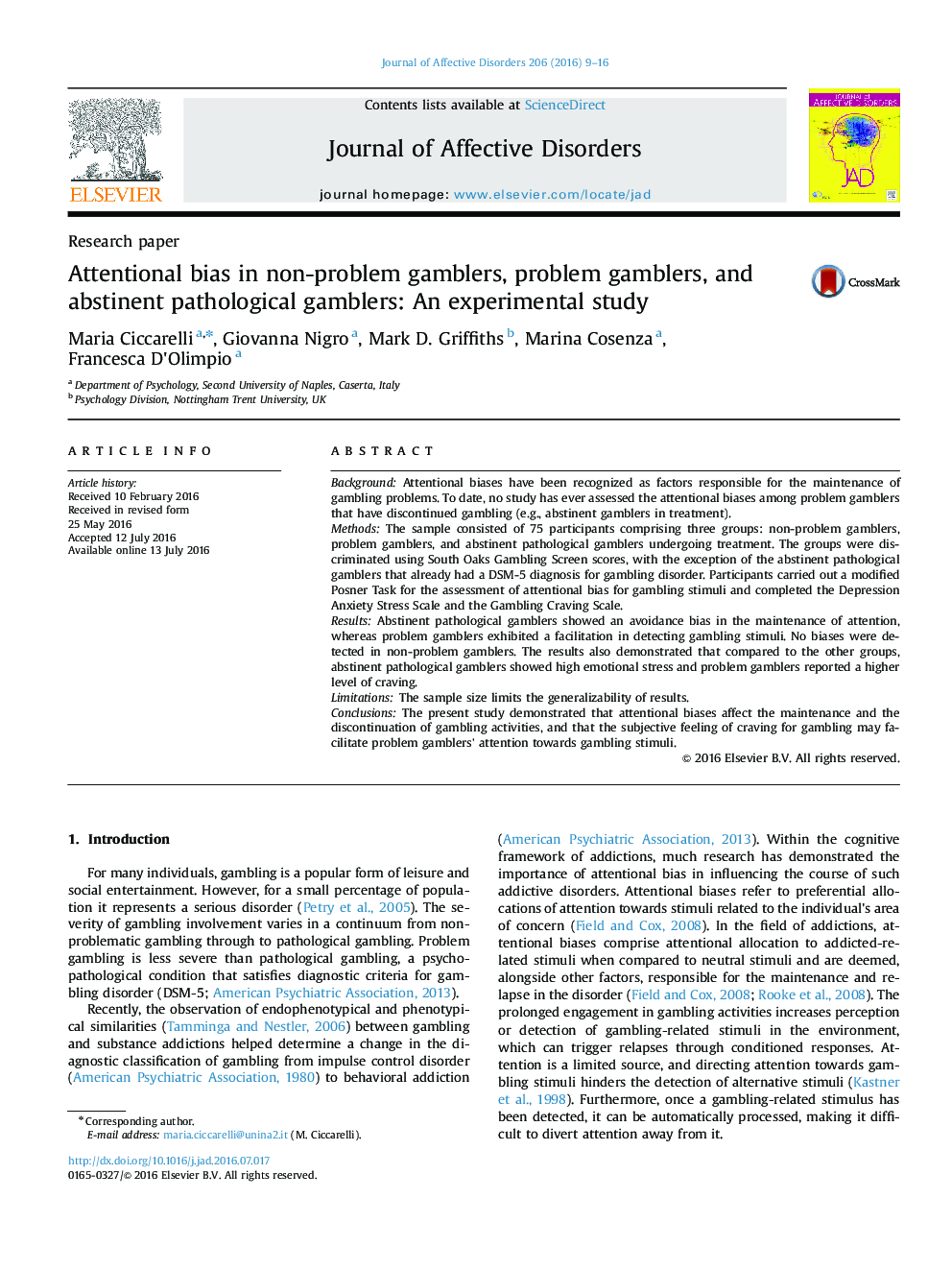| کد مقاله | کد نشریه | سال انتشار | مقاله انگلیسی | نسخه تمام متن |
|---|---|---|---|---|
| 6229746 | 1608119 | 2016 | 8 صفحه PDF | دانلود رایگان |
- Attentional facilitation for gambling stimuli was observed in problem gamblers.
- Attentional avoidance was found in abstinent gamblers.
- High craving in problem gamblers and stress in abstinent gamblers was found.
- Correlations between craving and attentional facilitation in gambling were found.
- Attentional bias is a pivotal factor in both maintenance and extinction of gambling.
BackgroundAttentional biases have been recognized as factors responsible for the maintenance of gambling problems. To date, no study has ever assessed the attentional biases among problem gamblers that have discontinued gambling (e.g., abstinent gamblers in treatment).MethodsThe sample consisted of 75 participants comprising three groups: non-problem gamblers, problem gamblers, and abstinent pathological gamblers undergoing treatment. The groups were discriminated using South Oaks Gambling Screen scores, with the exception of the abstinent pathological gamblers that already had a DSM-5 diagnosis for gambling disorder. Participants carried out a modified Posner Task for the assessment of attentional bias for gambling stimuli and completed the Depression Anxiety Stress Scale and the Gambling Craving Scale.ResultsAbstinent pathological gamblers showed an avoidance bias in the maintenance of attention, whereas problem gamblers exhibited a facilitation in detecting gambling stimuli. No biases were detected in non-problem gamblers. The results also demonstrated that compared to the other groups, abstinent pathological gamblers showed high emotional stress and problem gamblers reported a higher level of craving.LimitationsThe sample size limits the generalizability of results.ConclusionsThe present study demonstrated that attentional biases affect the maintenance and the discontinuation of gambling activities, and that the subjective feeling of craving for gambling may facilitate problem gamblers' attention towards gambling stimuli.
Journal: Journal of Affective Disorders - Volume 206, December 2016, Pages 9-16
